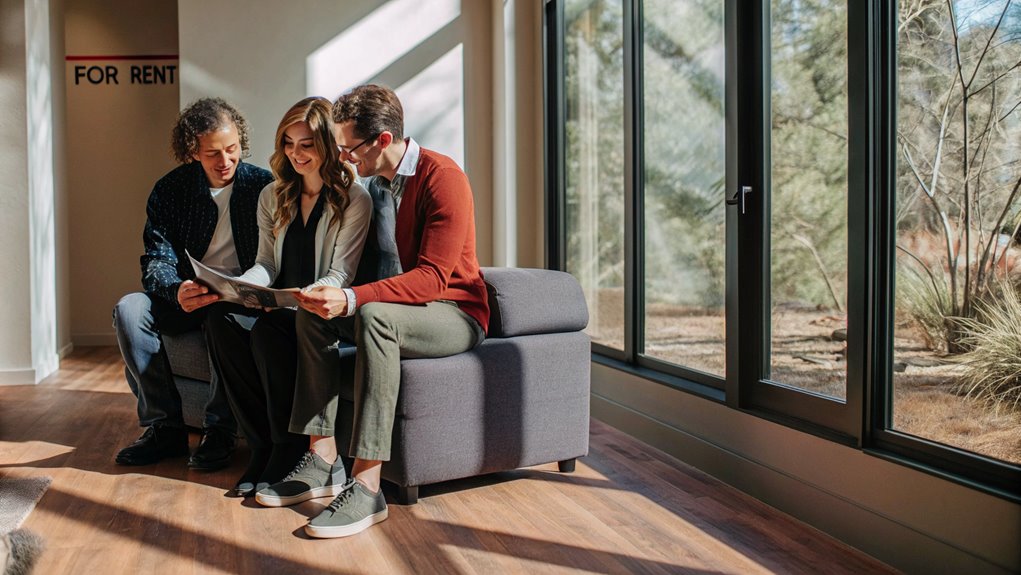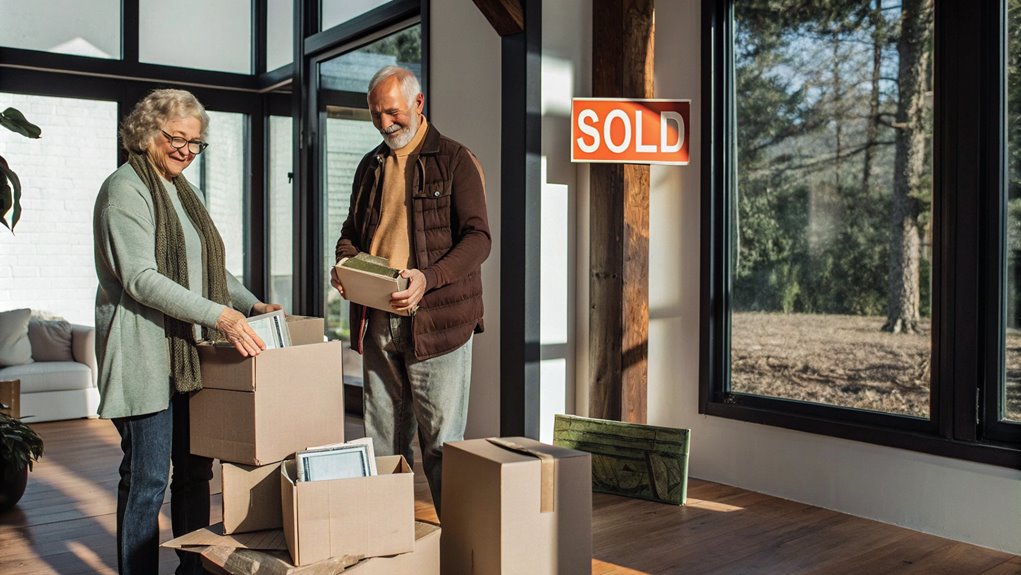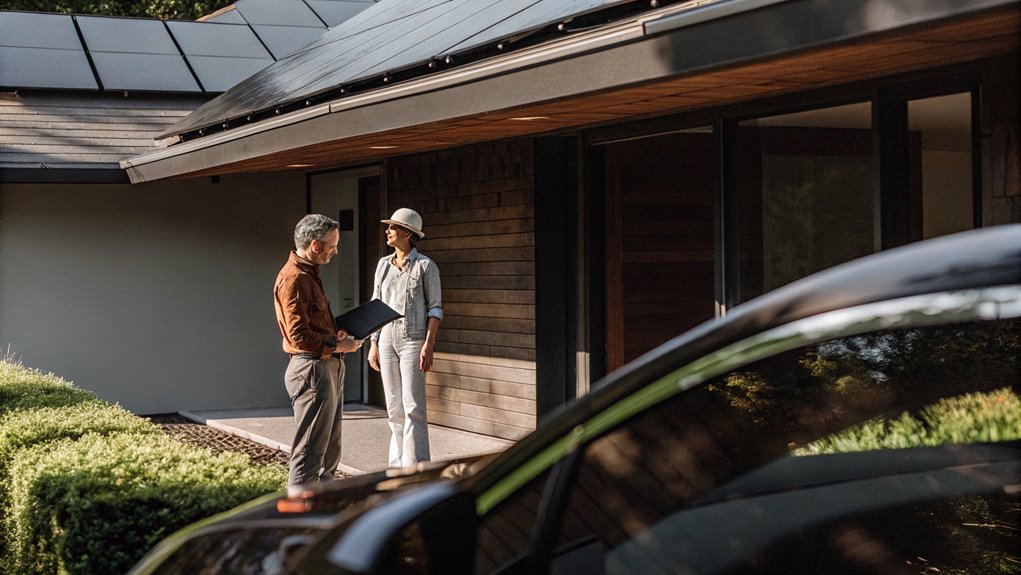Your home can help you save more for retirement in simple ways. You can rent out extra rooms to make money each month. If you have a basement, you can rent that too. Some people use apps like Airbnb to rent rooms for short stays.
The government lets you pay less taxes when you own a home. You can save money on what you pay for your home loan and property tax. This helps you keep more cash for later.
You can also use your home's value to get money for smart fixes or to invest. Making your home use less power can cut your bills. Moving to a smaller home can also help you spend less.
Living with family or sharing your home with others can make your money grow faster. Your home is like a piggy bank that can help you have more money when you stop working.
Strategic House Hacking Opportunities

Living in your home can help you save money for the future. You can make money by sharing your space. Turn your basement into a place someone can rent. Build a small house in your yard. Let others stay in your empty rooms.
You can also buy a building with many homes in it. Live in one part and rent out the other parts. Look for buildings with two to four homes. Banks will give you loans for these just like a regular house.
You can make more money by renting to people who stay for short times, like on Airbnb. Or rent to students near schools.
This helps you in two ways. You can live for free or cheap because others pay the bills. And you build up money over time as you own more of your home.
Maximize Property Tax Benefits
Owning a home can help you save money on taxes. When you know how to use these savings, you can have more money for when you stop working.
Make sure to talk to someone who knows about taxes to help you get all the savings you can.
You can save money on taxes in these ways:
- If you pay for your home loan, you can save on interest for loans up to $750,000
- You can save on your property taxes up to $10,000
- If you work from home, you can save money on your home office
- You can get money back for making your home use less energy
- When you sell your home, you may not have to pay taxes on up to $250,000 in profit (or $500,000 if you're married)
When you plan how to use these tax savings, you can keep more money in your pocket now and save more for later.
Home Equity Line Strategies

Your house can help you save money for when you stop working. You can get a special loan called a HELOC that uses your house's worth.
A HELOC lets you borrow money when you need it. You can use it to pay off big bills, fix up your house, or grow your money. The good news is you pay less in fees than with credit cards.
But be careful! Your house is like a promise to the bank. Don't borrow more than 80% of what your house is worth.
Make sure you can pay the money back each month. This way, you can save more money while keeping your house safe.
Revenue Through Short-Term Rentals
Want to make more money renting out your place? Pick the best website for your home. You can use Airbnb, VRBO, or Booking.com.
Change your prices when big events happen in town. Charge more during busy times like summer or holidays.
Look at what others charge nearby. This helps you set the right price to make good money.
Platform Selection Strategy
Let's help you pick the best places to list your rental home and make more money.
Think about who you want to stay at your place. Different websites bring different kinds of guests.
Airbnb is the biggest site. It works great if your home is special or one-of-a-kind.
VRBO is best for families. People often book longer stays here and spend more money.
Booking.com works well in big cities. Many people from other countries use it.
Small local websites can help you find guests from your area. You may have less homes to compete with.
If you have a fancy home, try Plum Guide. Rich people use it and will pay more to stay at nice places.
You can list your home on many sites at once. This helps you get more guests.
Just make sure you don't book the same days twice.
Maximize Peak Season Pricing
When people really want to stay at your place, you can charge more money.
Look at what's happening in your area – like fun events, holidays, and tourist seasons. Watch what other rentals charge too.
You can use special tools that help set the right prices based on what's happening right now.
Weekends and holidays are busy times, so charge more then. Think about the weather and local events that bring more guests.
Plan your prices six months early. This helps you get bookings ahead of time.
Check how well your place is booking each month and change prices if needed.
Smart Property Value Improvements

Making your home better is a great way to help it grow in value. It also helps when you want to save money for when you get older. Pick fixes that will pay off the most and that other people will like when they want to buy a home.
You can make your home worth more by:
- Making your kitchen new with better tools that use less power
- Fixing up your bathroom so it works well as you get older
- Adding better windows to save on power bills
- Adding plants that look nice but don't need much water
- Using new tools that help keep your home safe and use less power
Before you start any work, look at what other homes in your area are like. Talk to people who sell homes. They can tell you what fixes will help your home be worth more money over time.
Pick jobs that fix real problems in your home. This will help your home grow in value year after year.
Refinancing for Retirement Growth
When rates go down, you can save money by getting a new home loan. This can help you save more for when you stop working. There are two ways to do this.
You can:
- Keep your loan the same length but pay less each month
- Get a shorter loan that builds up your home value faster
This simple table shows what each choice can do:
| What You Can Do | How It Helps |
|---|---|
| Same loan time | Pay less monthly, save more |
| Shorter loan | Own home faster |
| Take cash out | Use house money for other savings |
| Lower rate | Pay less over time |
| Move savings | Put extra money in retirement |
Look at how much it costs to get the new loan. Make sure you save more than you spend. A good new loan can give you hundreds more each month to save. Or it can help you own your home before you stop working, so you need less money later.
Downsizing With Purpose

Moving to a smaller home can help you save money for your future.
When you sell your big house and buy a smaller one, you keep the extra money. A smaller home costs less to take care of and uses less power for heating and cooling.
You won't need to clean as much space. The money you save can help you enjoy life more when you retire.
Many people find that living in a smaller home makes them happier and gives them more freedom to do what they love.
Turn Size Into Wealth
Living in a big house can help you save more money for retirement. Think about moving to a smaller home. This can give you extra money to invest and grow your savings.
A smaller home costs less money to take care of. You can:
- Pay less for heating and power
- Clean and fix fewer rooms
- Use the money you save to make more money
- Pay less in taxes
- Put your money in different places to earn more
Your big house is like a piggy bank. When you move to a smaller home, you can use that money to make more money.
This helps you live well and save more for when you stop working.
Smart Space, Better Future
Living in a smaller home can make your life better. It's not just about saving money – it's about having a home that works for you when you retire.
When you pick a smaller home, think about what'll help you as you get older. Look for homes that are on one floor. Make sure doors are wide enough to move around easily. Pick a place that needs less work to keep up.
You want to live near your friends and the places you go often. Being close to doctors, stores, and fun things to do is key.
Many people find that smaller homes make them happier. They spend less on power and water bills. They've more free time because there's less house work to do.
Moving to a smaller home is like giving yourself a gift. It helps you stay free to do what you want, and makes life easier as you age.
House Flipping After Fifty
Thinking about flipping houses after 50? It can be a great way to make extra money for retirement.
Your years of owning a home can help you do well in this work. Focus on houses that just need simple fixes like paint and new floors, not big repairs.
You already know good workers who can help fix houses. You know which areas are nice to live in. Banks may give you better loans because you have good credit. You can tell how much fixes will cost because you've done home repairs before.
And you have more free time to watch over the work than younger people do.
If you learn about house flipping and are careful with money, you can make this into a good business. You can work when you want and earn money to help with retirement.
Energy Efficiency for Long-Term Savings

Making your home use less energy helps you save money for when you stop working.
Start by fixing old windows and doors. New ones keep hot and cold air where it should be. This can save you money on your bills.
A smart thermostat is like a helper that sets the right room temp. It saves you money fast – in about two years it pays for what it cost.
Solar panels on your roof cost a lot at first. But they use the sun to make power, which means smaller power bills.
Over 20 years, you could save $20,000 to $30,000. The state may also give you money back for getting them.
Upgrade Windows and Doors
Your home can feel better and save you money when you fix up your windows and doors. New windows that use two or three glass panes keep warm air in during winter and hot air out in summer. This means your home stays cozy, and you pay less for heating and cooling.
What you can do:
- Put in new windows that have two or three glass panes
- Add soft strips around doors to stop cold air
- Get strong front doors that keep heat inside
- Add screen doors to let fresh air in when you want
- Use special glue around windows to stop air leaks
These fixes help you save money on your bills each month. They also make your home worth more if you want to sell it later.
Your home will feel nicer, and you'll be happy knowing you're not wasting money on high energy bills.
Smart Thermostat Cost Benefits
A smart thermostat helps you save money on your power bills. It makes your home feel nice and costs less to run. The thermostat knows when to turn the heat up or down on its own. You can even use your phone to make your home warmer or cooler.
| Feature | Benefit |
|---|---|
| Smart Learning | Knows when to change on its own |
| Phone Control | Change heat from your phone |
| Power Reports | See how much power you use |
| Works with Other Gadgets | Talks to other smart home tools |
| Helpful Alerts | Tells you if something needs fixing |
The thermostat can help you cut your heating and cooling bills by about $10-15 out of every $100 you spend each year.
Solar Panel Investment Returns
Getting solar panels for your home can help you save money, even though they cost a lot at first. Most people see their power bills drop by half or more after they get solar panels. Plus, you can get money back from the government to help pay for them.
Solar panels work for a very long time – up to 30 years! During this time, you save money each month on power bills. You can even sell extra power back to the power company. If you ever sell your house, solar panels can make it worth more money too.
To get the most from your solar panels:
- Put them on when you need a new roof
- Pick the best panels you can afford
- Get good helpers to put them in the right spots
The best part is that solar panels start paying for themselves in about 5-10 years. After that, all the savings are yours to keep. Many states give you extra help to buy them, and you don't have to pay more property tax when you add them to your home.
Multi-Generation Living Benefits
Living with your family under one roof can help everyone save money. When parents, kids, and grandparents live together, they can split the bills. This means less money spent on power, water, and house fixes.
Family members can help pay the house loan faster by sharing costs. They can also take care of each other instead of paying for costly nursing homes. Some family members might pay rent to live in their own space in the house, like a small apartment. This extra money can help you save for when you stop working.
With more people helping to pay bills, everyone has more money left to spend on other things they need.







